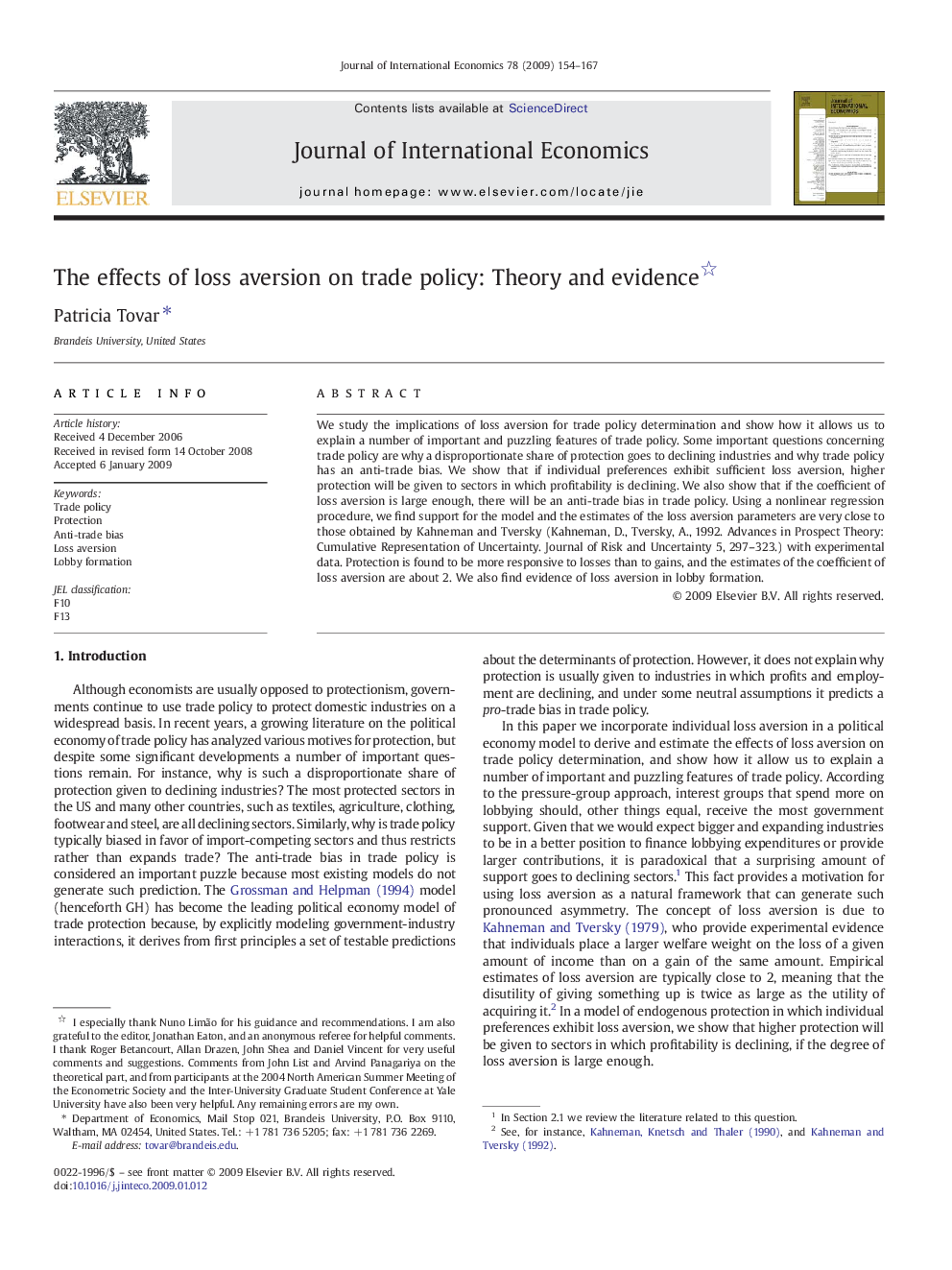| Article ID | Journal | Published Year | Pages | File Type |
|---|---|---|---|---|
| 962446 | Journal of International Economics | 2009 | 14 Pages |
Abstract
We study the implications of loss aversion for trade policy determination and show how it allows us to explain a number of important and puzzling features of trade policy. Some important questions concerning trade policy are why a disproportionate share of protection goes to declining industries and why trade policy has an anti-trade bias. We show that if individual preferences exhibit sufficient loss aversion, higher protection will be given to sectors in which profitability is declining. We also show that if the coefficient of loss aversion is large enough, there will be an anti-trade bias in trade policy. Using a nonlinear regression procedure, we find support for the model and the estimates of the loss aversion parameters are very close to those obtained by Kahneman and Tversky (Kahneman, D., Tversky, A., 1992. Advances in Prospect Theory: Cumulative Representation of Uncertainty. Journal of Risk and Uncertainty 5, 297-323.) with experimental data. Protection is found to be more responsive to losses than to gains, and the estimates of the coefficient of loss aversion are about 2. We also find evidence of loss aversion in lobby formation.
Related Topics
Social Sciences and Humanities
Economics, Econometrics and Finance
Economics and Econometrics
Authors
Patricia Tovar,
